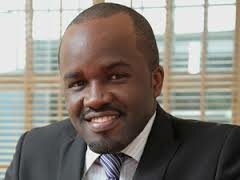
As mobile money becomes increasingly popular, governments, banks and businesses are increasingly looking for ways to take their cut of transactions and payments made through the service.
In the past 12 months, both Kenya and Uganda have introduced taxes on mobile money, and HumanIPO caught up with Nnamdi Oranye, head of business development at Indian Atlantic Telecoms, to discuss how mobile money can be made free.
Indian Atlantic Telecoms’ clients include MTN, Econet, Vodacom and Nashua Mobile.
HumanIPO: Is it possible for mobile money services to be free and if so, how?
Oranye: Yes, at Indian Atlantic we think one of the proactive ways to drive adoption of Mobile Money Services is by making it free. However, free does not necessarily equate to no profits.
There are various models that can be implemented to facilitate making mobile money free. By implementing the ‘freemium’ concept – offering basic services for free and charging a premium for additional services that consumers might find valuable – we believe that adoption of mobile money services can grow at an exponential rate.
We find that mobile network operators and financial institutions that deploy mobile money services sometimes cannot easily capture revenue streams for some of their target of payment services. We believe implementing a freemium model can facilitate such adoption.
What would the benefits be, if it was free?
We find that the biggest challenge with mobile money deployments is adoption and partly due to the fact that the main adversary to mobile money is cash.
A consumer receiving US$100 in cash from a relative usually always gets the full sent amount, even though there may be some indirect costs associated with the transfer through informal channels.
Sending the same amount of funds through mobile money channels, usually results in a deduction or additional surcharge on the amount. This makes the case for a consumer sending funds via mobile money a tad unattractive.
Making mobile money free would level the playing field with cash and facilitate bringing more consumers into the formal banking environment.
Is making it free a viable option any time soon?
Whilst the concept of deploying a mobile money solution sounds relatively straightforward, the implementation of the freemium model generally takes a bit more work to deliver as it involves generating a profit centre from other channels.
That being said, it is definitely a viable option for mobile money deployments in the near future – particularly for those deployments that haven’t gotten the traction they anticipated and have quite a bit of capacity on their technology platform.
With the right implementation approach and willingness of mobile money managers to explore this concept, I believe mobile money deployments should see genuine traction in a 12 – 18 month time frame.
What then is the way forward?
To make mobile money free, managers need to look at revising their current architecture to ensure that it still meets the profitability mandate allocated to its division whilst facilitating financial inclusion.
To assist, we have developed a mobile money business process architecture which can be tweaked for each individual country based on their respective characteristics.
We’re more than happy to share high level information with mobile money managers interested in exploring the freemium concept as we believe utilising mobile money to facilitate financial inclusion across Africa is an important consideration for mobile network operators and financial institutions.


















